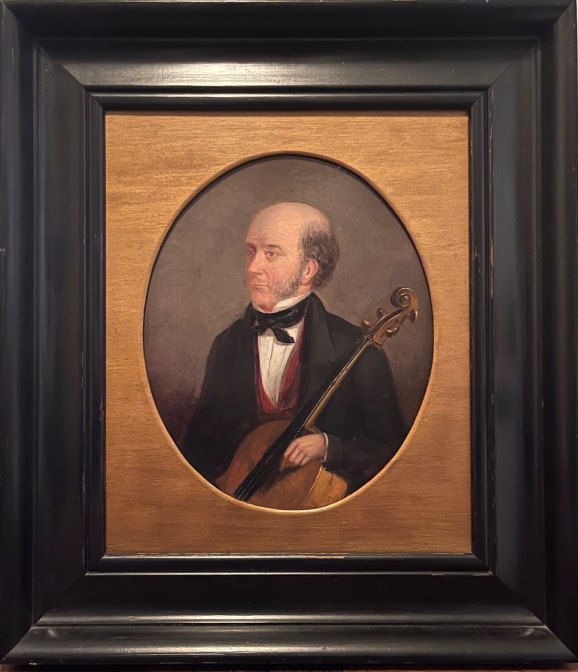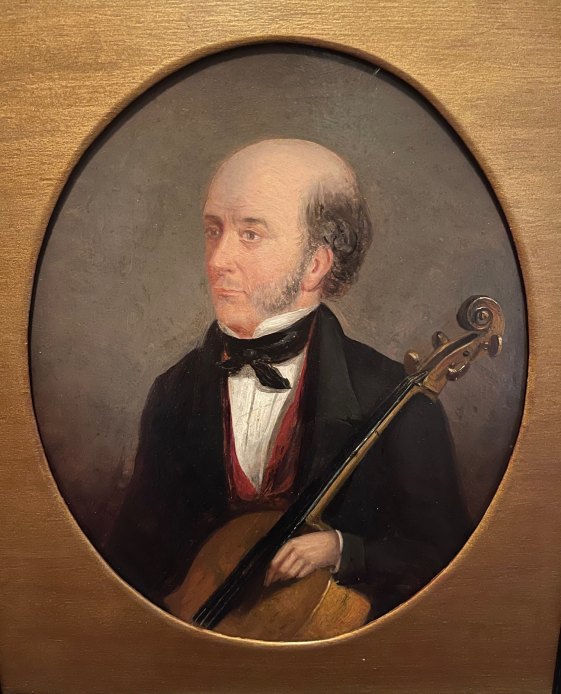 Enlarge Image
Enlarge Image


Lindley, Robert (1776-1855)
Framed Original Oil Portrait.
Mid nineteenth century. Frame: 20" h x 17.5" w x 2" d. Ovalized portrait: 11.25" h x 9.5" w. In excellent condition.Robert Lindley was considered by many the best cellist of his generation, noted for his enormous, rich tone and technical mastery. He started studies in 1792 with James Cervetto (the celebrated cellist who premiered Haydn's Cello Concerto No. 2). Cervetto was so impressed by Lindley that he did not charge for the lessons. Two years later, Lindley became the principal cellist of the Italian Opera in London, sharing a desk with renowned double-bassist Domenico Dragonetti, and held the post until his retirement in 1851.
Lindley was also one of the first professors at the Royal Academy of Music, a popular festival performer, and an in-demand accompanist (cellists often improvised while performing with singers at that time). He frequently performed chamber music with Paganini during the violinist's trips to England and is included in The Modern Orpheus, the well-known engraving depicting Paganini's 1831 London debut; Lindley is shown together with Dragonetti gathered around a piano with Paganini at the front.
Lindley's huge sound also helped him become a respected leader in the opera orchestra. Around the time he joined the ensemble, London orchestras were notoriously badly run. Conductors and concertmasters inefficiently divided the work of directing, often leaving performers confused and out of sync. In her book The Orchestra, Joan Peyser suggests that Lindley himself may have perpetuated the problem: The uncertain state of leadership in London's orchestras and the number of years it took for the situation to be remedied may have also been due, in part, to the omnipresent cello and bass team of Robert Lindley and Domenico Dragonetti. These two men, incomparable virtuosos on instruments that could be seen as well as heard, formed a team so remarkable for its solidarity of musical purpose that weaker members of the group instinctively looked to them for leadership.
Provenance: W.E. Hill and Sons.
